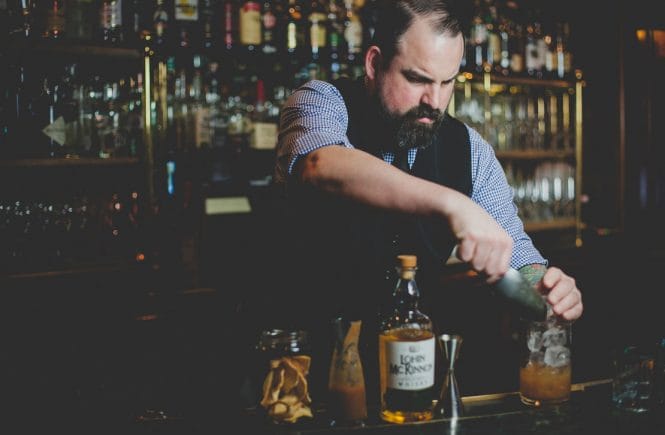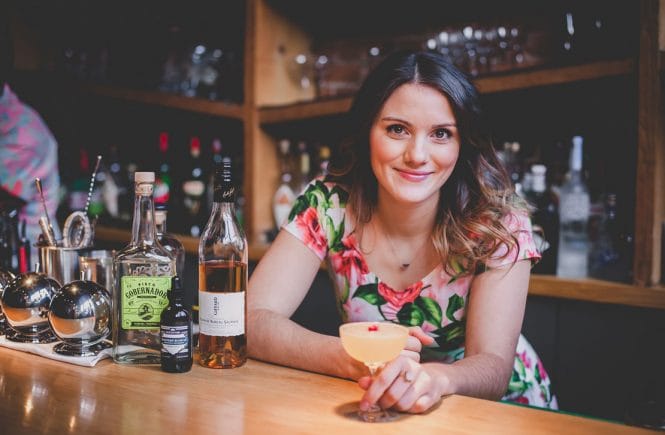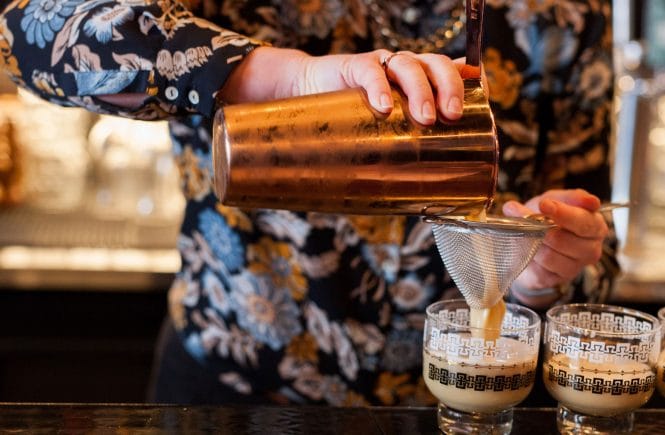Sexual harassment, Speed Rack and the realities of being a woman bartender
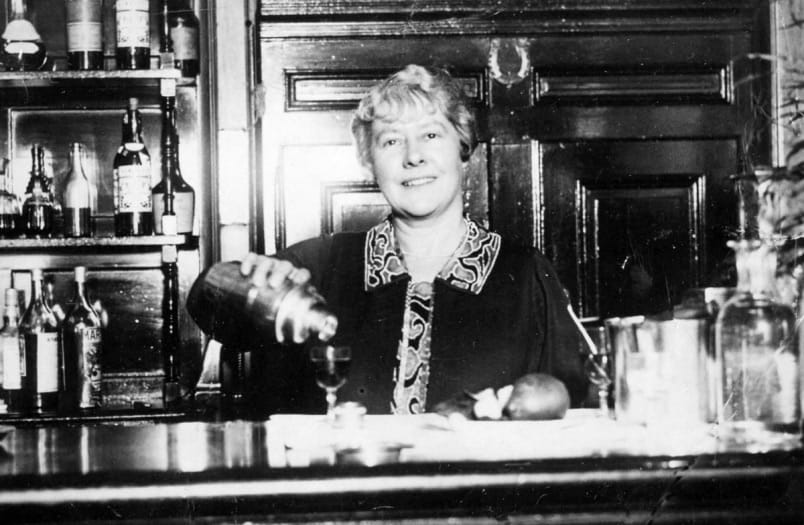
You’ve come a long way, baby – or have you?
In 1903, the most important bartender in the world was, arguably, a woman named Ada Coleman. “Coley” had just been appointed head bartender at the American Bar in London’s Savoy Hotel, where for two decades she ran the most influential cocktail program in the UK. When she retired in 1926, it was such big news that five London newspapers carried the story.
You’ve likely never heard of her. But you may have heard of Harry Craddock, the famous American bartender who replaced her and, some say, pushed her out because he didn’t like seeing a woman behind the bar.
Bartending is not an easy job for anyone. It’s not just physically hard; bartenders have to balance the technical skills of a chef with the people skills of a maître d’ in an environment where customers are often intoxicated. But women bartenders also have to cope with sexual harassment, sexist dress codes and even sexual assault on the job.
That level of unease is not at all uncommon. What is uncommon is for a case to hit headlines like the notorious incident last year in Toronto, where a College Street bar owner and his bar manager faced multiple charges of gang sexual assault on a 24-year-old woman. That assault led to protests, a training initiative called the Dandelion Project, and the creation of an organization called Bartenders Against Sexual Harassment (BASH).
“That incident hit home for a lot of people,” says BASH member Evelyn Chick, a former Vancouverite who is now bar manager at Toronto’s Pretty Ugly.
She told The Globe and Mail in February: “We definitely have a long way to go. [Harassment and assault] happen in bars all the time.”
Both customers and employees are at risk and that’s why bars worldwide protect female customers with code words, like asking for “Angela,” or ordering an “angel shot” to alert bar staff that they need help escaping a threatening situation.
But bar staff can’t escape quite so easily. Here in Vancouver, an International Women’s Day gathering of hospitality industry professionals saw an outpouring of shared war stories and knowing nods. As one woman said, “We just deal with it.”
Yet, they persist. In fact, they thrive.
In Vancouver, women bartenders are running some of the city’s top bar programs: Sabrine Dhaliwal at Uva, Kaitlyn Stewart at Royal Dinette, Katie Ingram at L’Abattoir, Amber Bruce at the Keefer Bar and Wendy McGuinness at Kissa Tanto, just to name a few.
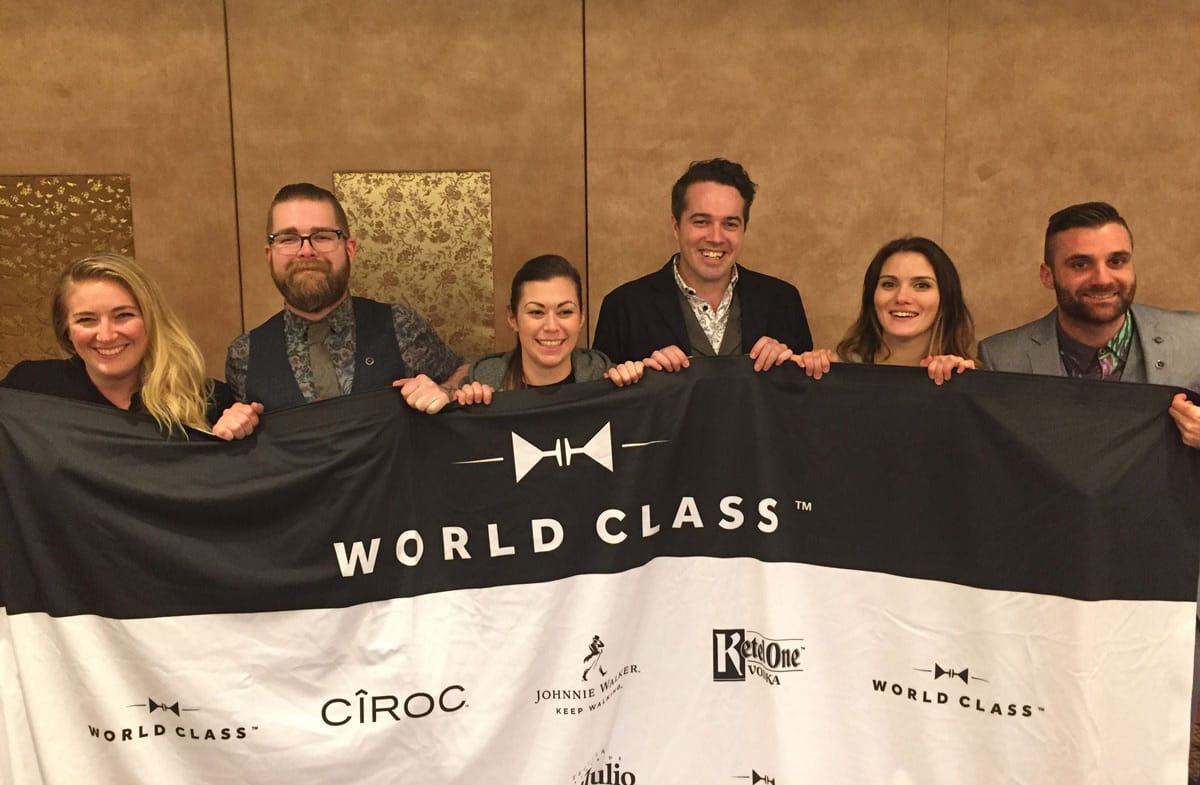
And they’re killing it in competition.
In 2015, Lauren Mote became the first woman to win Diageo’s World Class Canada and went on to place 12th in the world. The same year, Dhaliwal won Belvedere’s prestigious martini challenge in London.
They raised the bar for all Vancouver bartenders, but especially women.
Last week, Stewart, Bruce and Ingram became three of the six western regional finalists in the 2017 World Class Canada competition. They head to the Canadian finals next month in Toronto, where nearly half the competitors will be women. The winner goes to the world finals in Mexico in August.
“A sense of community has always been the method to the success for all bartenders in Vancouver. And certainly propping each other up, and standing on each other’s shoulders has really helped propel us, especially for our women,” Mote says.
Meanwhile, women bartenders from across Canada will meet in Toronto on April 30 to compete in Speed Rack, a women-only speed-bartending competition that started in the US a few years ago as a fundraiser for breast cancer awareness.
It’s a big deal, says Chick, who is Speed Rack’s Canadian ambassador.
“It’s been such a male-dominated industry for so long. It’s an event that promotes community. Everyone’s trying to be better and faster, and this brings everyone together.”
Sixteen women will compete, including three – Ingram, Stewart and Uva’s Jasmine Ruda – from Vancouver.
“Bartending for women is hard, but Vancouver is more accepting than other places,” says Ruda. “It’s very supportive. Even if we make mistakes, the audience is shouting out, ‘Keep going, you can do it.’ ”
Coley would have been proud.
—by Joanne Sasvari


